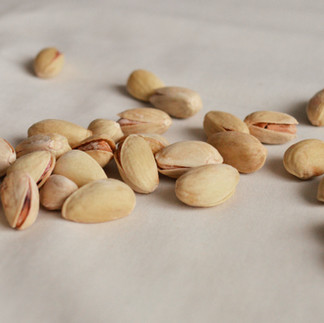Unveiling the Health Wonders of Nuts
- Jess

- Feb 12, 2024
- 3 min read
Updated: Mar 11, 2024

In terms of nutrition, few snacks can match the irresistible flavour and excellent health benefits of nuts. These bite-sized wonders not only fulfil your snack desires, but they also provide an excellent source of vital nutrients that can improve your overall health. Nuts provide your body, with heart-healthy fats, plant-based proteins, and a variety of vitamins and minerals (1).
Source of Vitamins and Minerals
Nuts are a good source of B vitamins, Vitamin C and Vitamin E. Nuts rich in B vitamins include peanuts, pistachios, walnuts, and almonds. In comparison, the largest sources of vitamin C are found in peanuts and chestnuts. Moreover, hazelnuts, walnuts, almonds, and pine nuts are among the types high in vitamin E (2).
Nuts, especially cashew and pistachio nuts, are a good source of copper and magnesium and have fairly high amounts of potassium. While most nuts are a good source of zinc and iron, almonds, cashews, and pine nuts are the richest sources (2).
Protein-packed
Nuts are an excellent plant-based protein source. Nuts, which are rich in vital amino acids, support immune system performance, cellular health, and muscle repair (2). A handful of whole nuts is a satisfying and nutrient-dense protein snack. Just keep in mind that some nuts are covered in salt which is harmful to the cardiovascular system when in excess, so choose unsalted nuts to protect heart health (3).
Heart health
Despite their high fat content, nuts and are linked to a lower risk of heart disease. They include monounsaturated and polyunsaturated fats, which help lower LDL cholesterol (the 'bad' type) and reduce the risk of atherosclerosis and cardiovascular disease (4).
Antioxidants
Nuts are rich in compounds known as polyphenols, which have a protective function in the body by aiding in the neutralisation of potentially harmful free radicals. Studies have shown that both walnuts and almonds have a protective effect against oxidative stress (5) (6).
Gut Health
Whole nuts are high in dietary fibre; the highest concentrations are found in hazelnuts, almonds and pistachios (2). Evidence has shown that diets high in fibre are associated with a reduced risk of chronic diseases including heart disease and diabetes (7). Furthermore, a high-fibre diet can help improve gut health and digestive function (8). The polyphenols present in nuts support the growth of good bacteria by acting as a prebiotic, feeding the microbiome (9). In addition, fibre fermentation in the stomach produces short-chain fatty acids (SCFAs). These substances provide energy to the cells that line the colon while also protecting the intestinal barrier (10).
Considerations when adding nuts to your diet

Choose whole nuts to get the best nutritional value, especially in terms of fibre content
Choose unsalted/unflavoured type to avoid excess salt and sugar
Opt for mixed nuts to gain varied nutritional benefits
Watch portion size because nuts are high in calories
References
(1) https://www.bhf.org.uk/informationsupport/heart-matters-magazine/nutrition/are-nuts-good-for-you
(2) Gonçalves, B., Pinto, T., Aires, A., Morais, M. C., Bacelar, E., Anjos, R., Ferreira-Cardoso, J., Oliveira, I., Vilela, A., & Cosme, F. (2023). Composition of Nuts and Their Potential Health Benefits-An Overview. Foods (Basel, Switzerland), 12(5), 942. https://doi.org/10.3390/foods12050942
(4) Ros E. (2010). Health benefits of nut consumption. Nutrients, 2 (7), 652–682. https://doi.org/10.3390/nu2070652
(5) Haddad, E. H., Gaban-Chong, N., Oda, K., & Sabaté, J. (2014). Effect of a walnut meal on postprandial oxidative stress and antioxidants in healthy individuals. Nutrition journal, 13, 4. https://doi.org/10.1186/1475-2891-13-4
(6) Torabian S, Haddad E, Rajaram S, Banta J, Sabaté J. Acute effect of nut consumption on plasma total polyphenols, antioxidant capacity and lipid peroxidation. J Hum Nutr Diet. 2009 Feb;22(1):64-71. doi: 10.1111/j.1365-277X.2008.00923.x. PMID: 19192028.
(7) James W Anderson, Pat Baird, Richard H Davis, Stefanie Ferreri, Mary Knudtson, Ashraf Koraym, Valerie Waters, Christine L Williams, Health benefits of dietary fiber, Nutrition Reviews, Volume 67, Issue 4, 1 April 2009, Pages 188–205, https://doi.org/10.1111/j.1753-4887.2009.00189.x
(8) Barber, T. M., Kabisch, S., Pfeiffer, A. F. H., & Weickert, M. O. (2020). The Health Benefits of Dietary Fibre. Nutrients, 12(10), 3209. https://doi.org/10.3390/nu12103209
(9) Plamada, D., & Vodnar, D. C. (2021). Polyphenols-Gut Microbiota Interrelationship: A Transition to a New Generation of Prebiotics. Nutrients, 14 (1), 137. https://doi.org/10.3390/nu14010137
(10) den Besten, G., van Eunen, K., Groen, A. K., Venema, K., Reijngoud, D. J., & Bakker, B. M. (2013). The role of short-chain fatty acids in the interplay between diet, gut microbiota, and host energy metabolism. Journal of lipid research, 54(9), 2325–2340. https://doi.org/10.1194/jlr.R036012










Comments